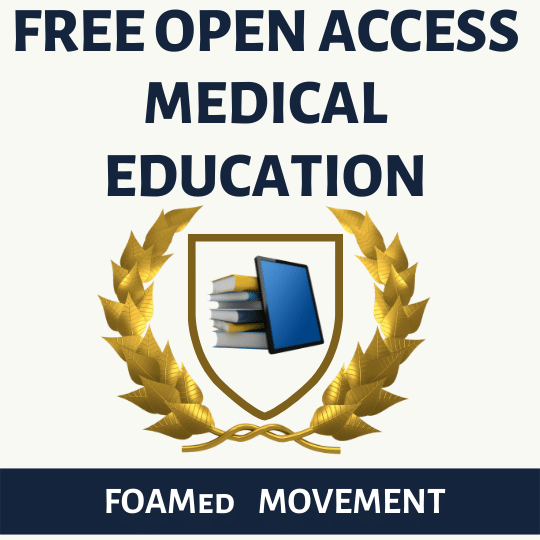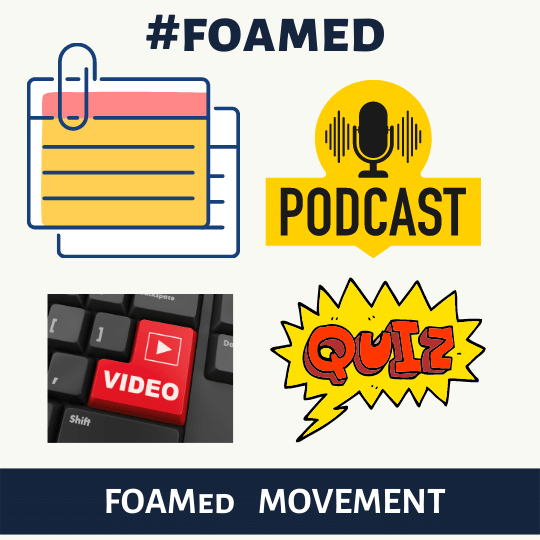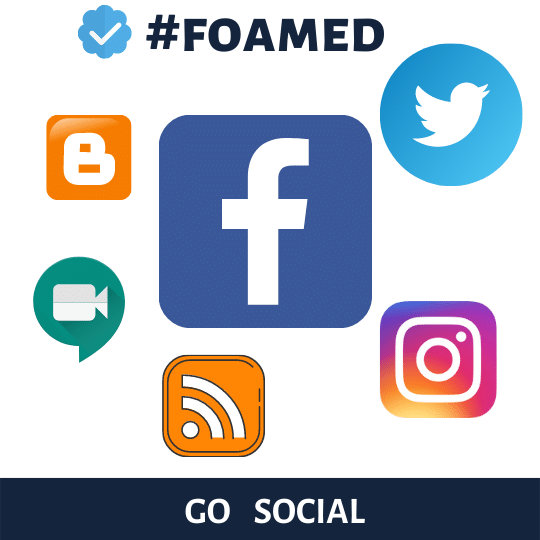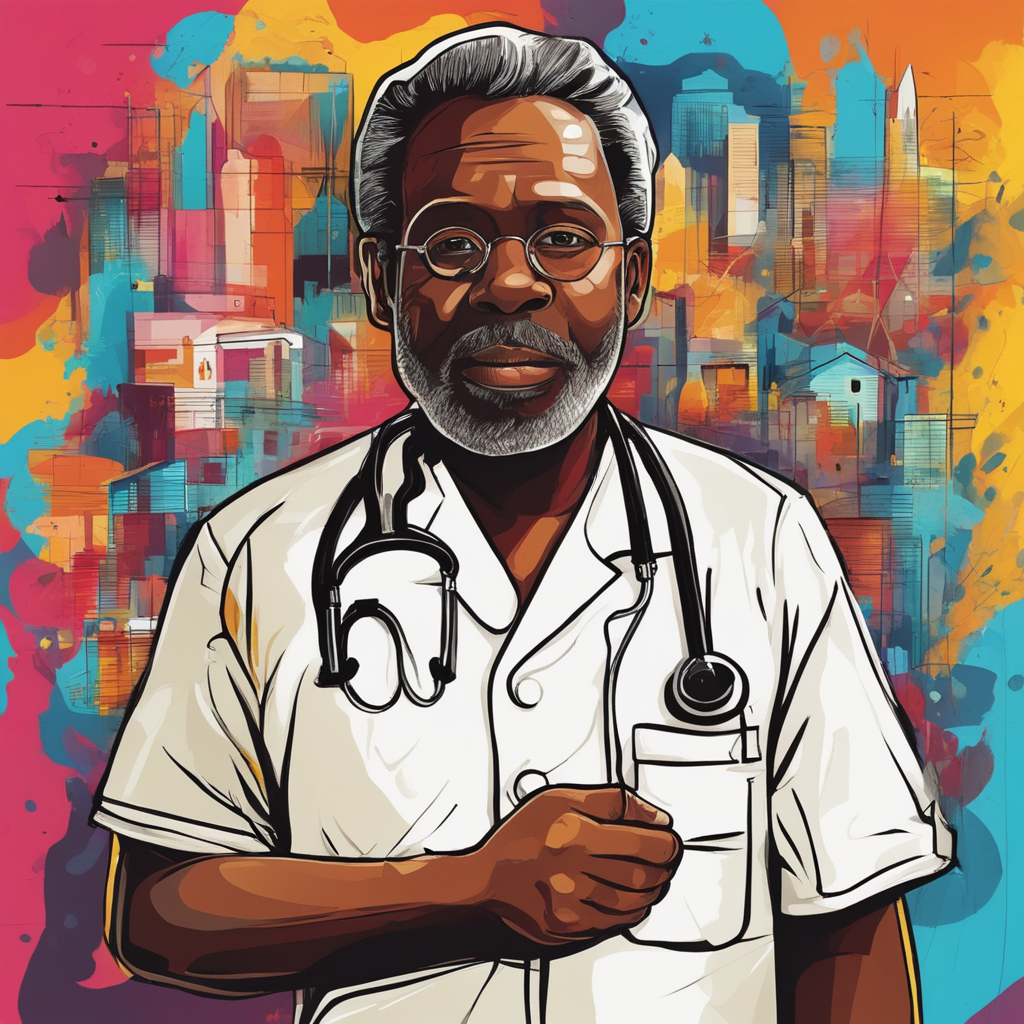There are a number of reasons why you might want to consider free open access to medical education (FOAMed). Perhaps you’re looking for an alternative to traditional medical school, or you simply want to learn more about medicine outside of the classroom. Whatever your reason, FOAMed can offer a wealth of resources and knowledge.

When was the term FOAM or FOAMed first coined?
The term FOAMed was first coined in 2012 by a group of medical educators in emergency medicine during an international conference. They wanted to create a way to describe the growing trend of free open access to medical education resources. The acronym stands for Free Open Access Medical Education. The goal of this asynchronous learning model is to augment traditional educational principles.
Introduction
The practice of medicine is constantly evolving. Indeed there is a paradigm shift towards asynchronous learning among medical trainees. This system of medical training is contrary to traditional educational principles.
In recent years, there has been an explosion in the amount of medical information available online. This has led to a corresponding increase in the use of the internet as a tool for medical education. While there are many benefits to this trend, there are also some potential drawbacks.
What are some of the advantages of FOAMed?
This is especially beneficial for medical students, who can use online resources to supplement their classroom learning. In addition, online medical education can be tailored to individual needs and interests, allowing each student to focus on the topics that are most relevant to them.
Also, FOAMed blogs are readily available online, which means you can access them from anywhere in the world, at any time. Another advantage is that it’s free, so you don’t have to worry about spending any money on tuition or books. Additionally, FOAMed covers a wide range of topics, so you’re sure to find something that interests you. Finally, because anyone can create and share content, FOAMed is always evolving and growing, so there’s always new information to discover.
What are some of the disadvantages of FOAMed?
One of the biggest concerns is that not all online information is accurate or up-to-date. This can lead to students forming misconceptions about important medical concepts. In addition, online learning can be isolating, preventing students from interacting with their peers and instructors in a traditional classroom setting.
An important argument raised by medical educators who oppose FOAMed is that because anyone can create and share content, there’s no guarantee that what a student is reading is accurate. However, there are a number of ways to fact-check information you find online, so you can be sure you’re getting accurate information. Indeed, most FOAMed resources cite their sources of information, further reducing the risk of bias or anecdotal evidence.
Additionally, because FOAMed is free and easily accessible, it’s possible to get overwhelmed by the amount of information available. The general advice for medical trainees is that it is essential to be selective in what one reads and watches and to take everything with a grain of salt. This is especially so if it contradicts previously acquired knowledge about a particular concept.
Indeed FOAMed resources are not stand-alone repositories of medical education. Furthermore, most students use them as a means of complementing their own background knowledge. As such, the disadvantages usually cited may indeed be an exaggeration.

Mnemonics
Memory aids (mnemonics), can be used to support student learning in several ways. First, they can provide a framework for organizing information. This can be especially helpful when studying for exams, as it can help to break down a large body of material into more manageable chunks.
Second, mnemonics can help to make information more memorable. This is especially useful for facts and formulas that need to be recalled quickly and accurately.
Finally, mnemonics can be used to improve retrieval from memory. This can be helpful not only for exams but also for everyday classroom quizzes and assignments. When used effectively, mnemonics can be a valuable tool for helping students learn.
Podcasts
In recent years, podcasts have become an increasingly popular way to consume content. Whether you’re commuting to work or taking a jog around the park, podcasts offer a convenient way to stay entertained and informed. And while they’re often associated with topics like pop culture or current events, podcasts can also be a valuable resource for medical professionals. In a field where keeping up with the latest research is essential, podcasts can provide on-demand access to experts in a wide range of specialties. What’s more, podcasts can be an effective way to learn about new treatments and approaches to patient care. As medical education evolves, it’s likely that podcasts will play an increasingly important role. Whether you’re a seasoned doctor or a medical student just starting out, don’t be afraid to give them a try.
Videos
When it comes to medical education, there are now many free online videos that can be helpful in learning about various topics. These videos can be a great supplement to traditional education, and they offer the opportunity to learn at one’s own pace. In addition, they can be a great resource for review or for catching up on topics that may have been missed in class.
Quizzes
Free online quizzes can be a great resource for medical students who are looking for extra practice. However, it is important to be selective when choosing a quiz site. There are many blogs that offer free quizzes, but not all of them are high quality. Some sites may contain outdated information, while others may be poorly designed and hard to use. When choosing a quiz site, look for one that is developed by a reputable organization and that offers up-to-date content.
Flashcards
Medical education is a demanding process that requires students to learn a vast amount of information. One way to help them memorize and retain this information is to use flash cards. Flash cards can be used to quiz oneself on a variety of topics, from medical terminology to diagnostic procedures. They are also convenient to use and can be easily carried around in a pocket or purse. In addition, flashcards can be customized to fit the individual needs of each student. For example, some students may prefer to have cards that contain only text, while others may prefer to have cards with pictures or diagrams. By using flashcards, students can actively engage with the material and increase their chances of success in medical school.
Compendium
A compendium is a comprehensive reference work that gathers together information on a particular subject. In the field of medicine, compendiums are used to provide an overview of medical knowledge and practice. They are often used as teaching aids in medical education, helping students to gain a broad understanding of the subject matter. In recent years, there has been a growing trend towards free electronic compendiums (mainly from aggregated web logs), which can be accessed online or through dedicated mobile apps. Electronic compendiums remain popular among medical students and professionals as they offer a more user-friendly experience and allow for easy referencing. Whichever format they take, be it print or electronic, compendiums continue to play an important role in medical education.

What are some of the best FOAM resources online?
There are various open access medical education platforms that complement traditional blogs. These include Twitter, google hangouts, Facebook groups, Instagram, and RSS feeds.
There is a large foam community in medicine. Some popular examples are in emergency medicine. These critical care blogs include Resus.Me, The Skeptics’ Guide to Emergency Medicine (SGEM) podcast, and the Emergency Medicine Board Review course by EmCrit. If you are interested in becoming an emergency physician, the best resource is “life in the fast lane.”
There are very few FOAMEd-oriented endocrinology resources available online.
EndoBible (United Kingdom): A practical guidance on endocrine diagnosis and management. Various medical topics are covered on this website (Since 2009).
Endotext (United States) The best clinical endocrinology source in the world (Since 2000)
MyEndoConsult A free online endocrinology education resource. 😊 (Since 2019)
FOAM movement
Join the FOAM movement by using the hashtag #FOAM #FOAMed on social media, to access medical education resources.
Conclusion
Despite the potential drawbacks, the use of the internet as a tool for medical education is likely to continue to grow in popularity. In recent years, there has been an explosion in the amount of medical information available online. Overall, FOAMed is a great way to learn more about medicine and healthcare.
If you’re looking for an alternative to traditional medical school, or you simply want to learn more about these topics outside of the classroom, FOAMed is definitely worth considering. With its vast amount of freely available resources, you’re sure to find something that interests you and helps you further your medical education.
References
- Rashid MA, Yip SWL, Gill D, Arfeen Z. Sharing is caring: an analysis of #FOAMed Twitter posts during the COVID-19 pandemic. Postgrad Med J. 2022 Mar;98(1157):199-204.
- Jalali N, Carter C, Alfaraj S, Moghtaderi A, Pines JM. Trends and Predictors of Retweets in Free Open Access Medical Education (#FOAMed) on Twitter (2013-2017). Acad Emerg Med. 2019 Apr;26(4):443-446.
- Bucher J, Donovan C, McCoy J. EMS providers do not use FOAM for education. Int J Emerg Med. 2018 May 24;11(1):27.
Kindly Let Us Know If This Was helpful? Thank You!


